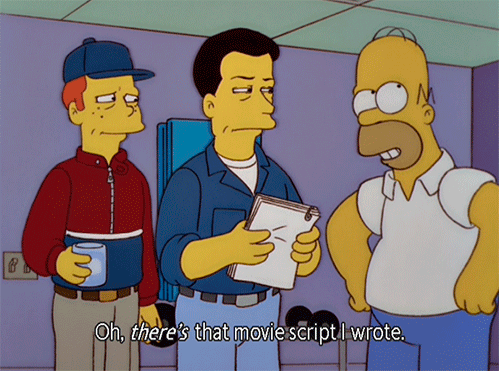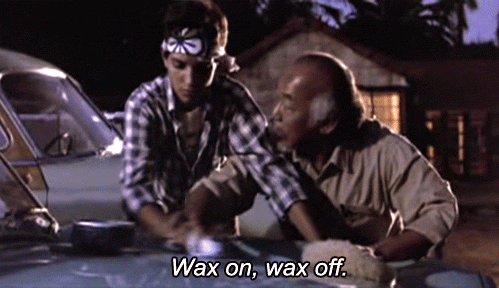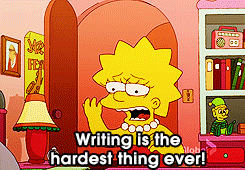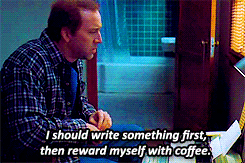Every so often I see an article resurface called “I Will Not Read Your Fucking Script” by screenwriter Josh Olson, and it never fails to dishearten me. I respect Olson as a peer and have no desire to dissect his opinions in a point-by-point response. That has already been done here and with the same acerbic callousness as the original article. No, the purpose of this blog post is to promote a mutually beneficial culture of harmony among writers. We have all faced or are facing the same challenges, and there’s no reason for anyone to struggle alone.
If you’ve had any level of success in your career, I believe that there is a moral responsibility to give back to the community. Though most of us write alone in our creative caves, we are a community. Whether you’re a screenwriter, novelist, playwright, or poet, my message to you is simple––share your knowledge with others. I understand that time is valuable, and we never have enough of it, but helping someone else improve will make you a better writer and a better person. Pursuing a career in writing is an uphill battle full of rejection. We don’t need to sling more of that at each other. Inclusion, not exclusion, empowers us all.
Pay It Forward
I spent a decade as a screenwriter in Los Angeles. I sold a few scripts, got hired on jobs, earned my way into the WGA, and took dozens upon dozens upon dozens of meetings. I wasn’t a huge success, but I’m proud of my achievements, and there’s a lot to be said for experience built through blood, sweat, and tears. My time working in the film industry has given me insight that I can pass along to other writers, not just about craft but about life. When I moved to LA, fresh out of college and doe-eyed with dreams of making it big, my screenwriting mentor was an invaluable resource. Writers fight against self-doubt every day, and simply having someone to talk to or bat ideas around with can make the difference between success and failure. It certainly did for me. Now, I’ve come full circle and have taken on a pupil of my own.
Mentoring another writer is immensely rewarding and not completely selfless, either. Nothing alleviates writer’s block like helping someone else break a story. I recently befriended a guy who is planning a move to Hollywood to pursue screenwriting. That’s a terrifying life change––new city, new people, new profession. I’ve been helping him outline his story while offering advice on everything from structure to formatting to life in LA. Our goal is for him to have a completed script ready for his move. What does this cost me? An hour of my time here and there, and it’s worth every second. I’m not an Academy Award winner. I don’t have a doctorate in, well, anything. I’m still learning––we all are––so why not learn together?
Being a mentor isn’t about providing shortcuts. I’m not suggesting that you should pass along every script that hits your desk to your agent. It’s a point of pride for any self-made writer, myself included, that no one handed us anything. You’d only be doing a young writer a disservice by taking that opportunity away or escalating them into a situation that they’re not prepared for. But there’s a lot of road between handing someone undeserved success and helping them earn it.
A true mentor provides the tools for people to make themselves a success.
Diamond in the Rough
 There are people out there who will try to take advantage of your generosity, often those who have no real desire to be a writer. There’s the misconception that writing is an “easy” job and that anyone can do it. I understand these situations can be frustrating and insulting. You don’t have to indulge these spurious requests, but you don’t have to be an entitled jerk about it, either. If you’re going to invest your time, ensure that the person is passionate and willing to accept your legitimate critique of their work. Honesty and respect are a necessity; no one ever improved through timid coddling.
There are people out there who will try to take advantage of your generosity, often those who have no real desire to be a writer. There’s the misconception that writing is an “easy” job and that anyone can do it. I understand these situations can be frustrating and insulting. You don’t have to indulge these spurious requests, but you don’t have to be an entitled jerk about it, either. If you’re going to invest your time, ensure that the person is passionate and willing to accept your legitimate critique of their work. Honesty and respect are a necessity; no one ever improved through timid coddling.
We can’t read every half-baked script that comes our way, but don’t reject a potential student automatically just because you’re busy. Keep an eye out for the right person to take under your wing. Someone hungry. Someone passionate. Someone willing to put in the work. Make the time to have their growth become part of your routine. I guarantee that there’s someone out there who could use your advice. You owe it to yourself and to your profession to find them. It’s not charity or philanthropy; it’s just being a good person.
Think back to the beginning of your career. I don’t care if you’re Stephen King or William Goldman, somewhere along the line someone took a chance on your talent. Someone with a thousand other things on their plate took time out of their day for you. What if that person had said, “No, I will not read your fucking script”?
Our Legacy
Awards, sales, box office––it’s all fleeting. Stay grounded. The world will spin on without you, and there’s far more to leaving a legacy than your work. It is built through the people you influence, inspire, and teach. When a writer that you’ve helped groom carves his or her own path to greatness…that’s a helluva legacy.



